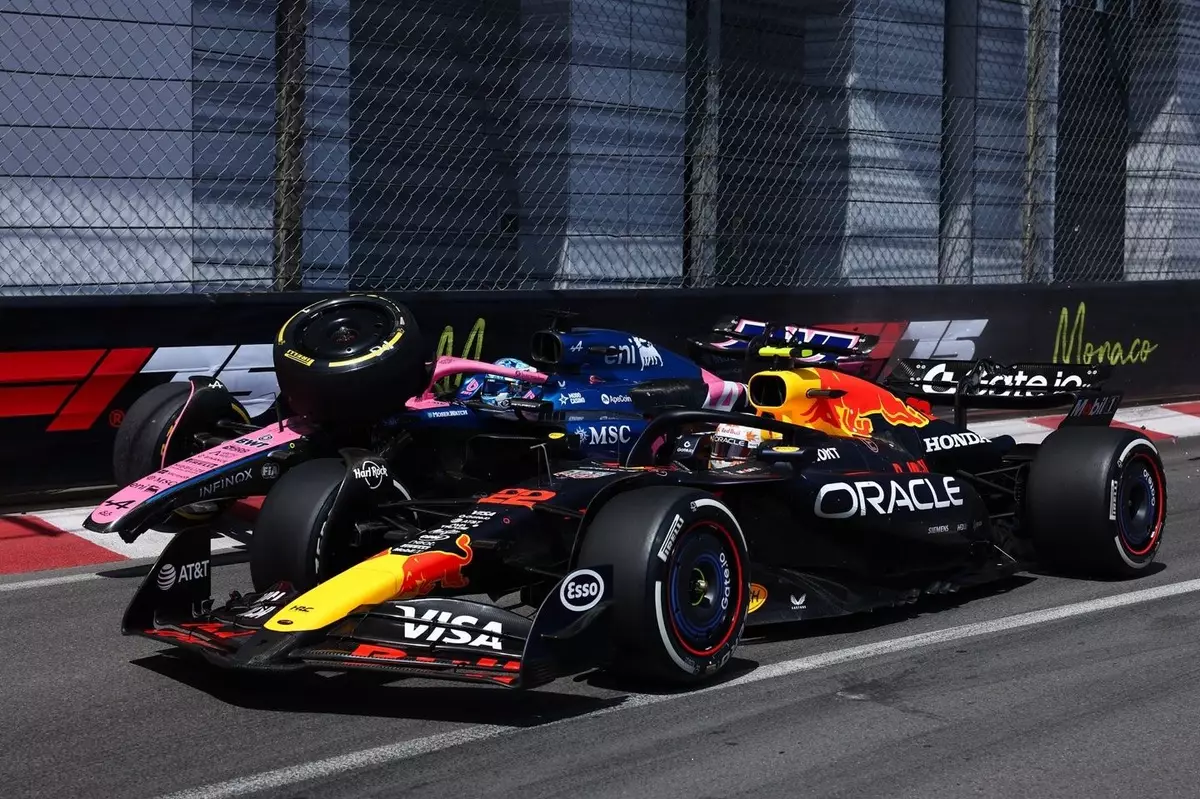The Monaco Grand Prix is renowned for its twists, turns, and high-stakes drama, but nothing shocked fans quite like the collision between Pierre Gasly and Yuki Tsunoda. What should have been a routine race quickly devolved into an episode of finger-pointing and blame. Gasly, who suffered the brunt of the incident, vocally attributed the crash to Tsunoda’s misjudgment under braking. The clash between the two former teammates has ignited a rivalry that could spill over well beyond the racetrack.
This collision epitomizes the fierce competition within Formula 1, where even a momentary lapse in judgment can yield catastrophic consequences. Gasly’s assertions that Tsunoda moved erratically while braking raised the stakes of a feud that had been simmering since their time together at AlphaTauri. It’s not merely a race incident—it’s a microcosm of the pressure and calculated risks faced by drivers in top-tier motorsport.
Context Matters: Gasly’s Remarks Under the Microscope
Gasly openly expressed his frustration, claiming that his earlier radio message—devoid of context—was interpreted incorrectly. His statement, “I had the brakes,” reveals his conviction about the incident. He explained how Tsunoda’s driving had consistently placed him precariously close to his own car throughout the race. Gasly’s readiness to blame Tsunoda hints at his desire to shift the narrative from merely a racing incident to one where he feels justified in his position.
What’s alarming here is how quickly miscommunication can shape public perception. Gasly’s reflections on his former teammate’s driving tactics provoke questions about responsibility during races. A driver’s decision to defend their line might be viewed as aggressive, but in the realm of racing, such decisions are often met with reverberating consequences. Gasly’s focus on Tsunoda’s alleged mistake only underlines an inherent pressure that springs from rivalry—a need to not only perform but to be seen as in control.
Divergent Perspectives: Tsunoda’s Reaction
Tsunoda’s astonished reaction to Gasly’s remarks underscores a wider theme of accountability in motorsport. Claiming he did nothing wrong, Tsunoda’s confidence in his actions speaks volumes about the different philosophies that drivers adopt on the track. Where Gasly saw a moment of recklessness, Tsunoda viewed a calculated defensive maneuver. This dichotomy is a familiar sight in racing—each driver has their narrative, often clashing within the confined arena of competitive racing. His willingness to state he would act the same in hindsight represents an immovable stance, and it complicates the discourse surrounding driver accountability.
Moreover, it gives us insights into Tsunoda’s growing maturity as a driver, demonstrating that he is not only learning from his experiences but also willing to stand up for his decisions. In an arena where reputations are etched into the annals of history through every maneuver, Tsunoda’s refusal to concede ground sets the stage for future races—and potential clashes.
The Bigger Picture: Alpine’s Struggles and Future Prospects
Beyond the personal drama unfolding between Gasly and Tsunoda lies a more profound narrative of Alpine’s struggles throughout this race weekend. With both drivers failing to find competitive pace in Monaco, attention turns to the capabilities and design flaws of the A525 car. Gasly’s frank admission about the car’s lack of compliance on the tough Monaco circuit reveals deeper issues that could hinder the team’s performance.
Highlighting their susceptibility to low-speed corners and instability over kerbs offers insight into how crucial the upcoming Spanish Grand Prix will be for Alpine. With Barcelona’s more favorable layout ahead, the team has an opportunity to rectify the setbacks experienced at Monaco. The road ahead might be treacherous, but Gasly’s optimism suggests a team dedicated to bounce back stronger—a refreshing shift from despair to resilience.
This incident is not merely about one crash; it encapsulates the broader challenges faced within the sport. Effective teamwork, accountability, and individual growth are skills that will dictate the trajectories of both Gasly and Tsunoda, not just as drivers but as assets to their respective teams. Their intertwined paths will continue to captivate audiences—a narrative that goes beyond the asphalt and speaks to the very essence of competition itself.


Leave a Reply